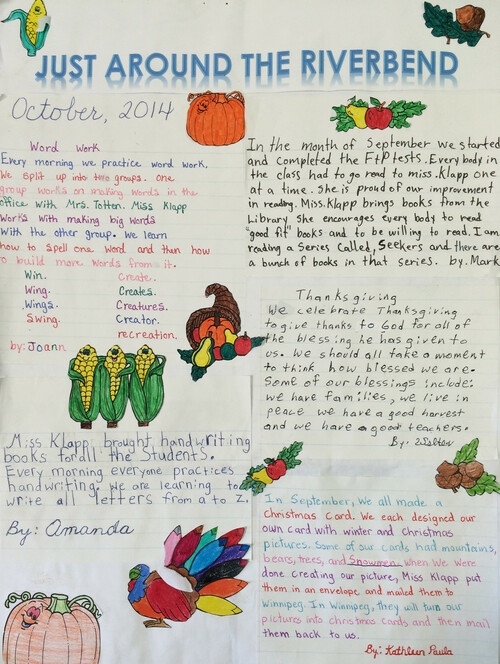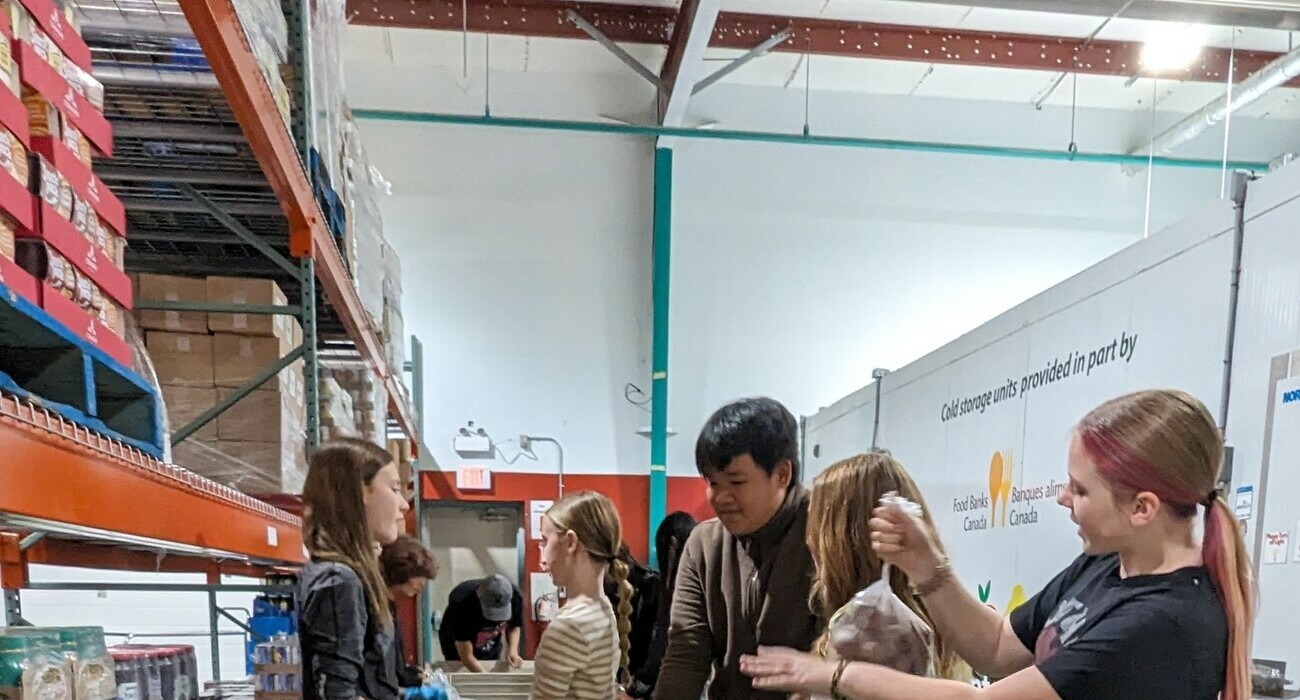
For students on many of Palliser’s Hutterite colony schools, the monthly newsletter they create isn’t just an exercise in writing, editing and teamwork. It’s a valued communication tool widely distributed to a receptive audience on the colony.
Amanda Klapp, teacher at Riverbend Colony School, about 60 kilometres north of Vulcan, says the monthly publication “Just Around the Riverbend” has been regularly published for many years, giving colony families a glimpse of what students are learning and exploring timely topics, from holidays to world events like the Olympics.
The students are involved in every part of creating the newsletter, from brainstorming the story ideas each month, to determining which student will report on which topic and who can provide suitable art. If more than one student wants to write on a particular topic, students vote to make a final determination, Klapp says.
Once assignments are settled, the students conduct their research and produce a rough copy. Students collaborate on the editing process and once a good copy is prepared in tidy printing or handwriting, the students layout the newsletter with glue on ledger-size paper. Issues might include pictures, charts, a calendar of events and a message from the teacher.
“There are a lot of parts to it,” Klapp says. “The students are very aware of their own learning. The newsletter is recognition of what they’ve learned.”
The editing process is especially important as young writers talk with each other and their teacher about how to improve their work.
“Every time you sit down and conference with kids and give feedback, it’s a positive thing,” Klapp says.
The newsletter reflects the reading, writing and literacy work occurring at school. Students flex creative muscles, learn to be independent decision makers as well as being supportive members of the newsletter team.
Aside from the benefits for the students themselves, the newsletter has proven an excellent communication tool with parents who can see for themselves what students are learning.
During the Olympics, for example, students were learning graphing in math class, so naturally graphs were part of the coverage of the games. A Thanksgiving issue featured information about the holiday, the recently completed fall Fountas and Pinnell reading assessments, and a Social Studies report on Canadian geography.
“We send one to every family so all colony members can see it,” Klapp says. “We also post it in the kitchen so everyone can read a copy.”
Grade 8 student Walter Decker says the newsletter is a good way of letting parents know what’s happening in school and his parents have commented favourably on articles he’s contributed. He says the newsletter has helped him become a better writer and he enjoys the process.
Sarah Gross, another Grade 8 student, says her favourite article published so far was on Terry Fox “because it was amazing what he did…My parents liked it and I’m glad to see when people are reading it in the kitchen.”
Not only does she enjoy seeing her work in print, “I’m excited to see what the other kids write about.”
This fall, Klapp invited parents to comment on the newsletter and offer suggestions for future issues.
One Riverbend parent says she looks forward to reading the publication every month.
“I never throw it out,” she wrote. “I read it a couple times till he brings home next month’s. Keep up the good work.”
“I like to see how creative their stories are and what they choose to write about,” wrote another parent.
As for what they’d like to see more of in future editions, one parent offered this observation: “Please keep it coming. Everything is done to perfection. We have wonderful teachers!”

